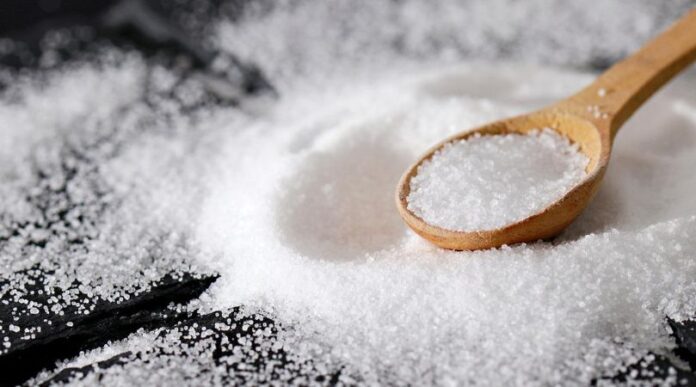Salt makes food tastier and just imagine who will eat food if there is not a pinch of salt in the curries which will be tasteless and undesirable. In fact, salt is necessary for human and animal bodies and life cannot go on without it. Salt companies produce more than 300 types of salt for food processors, chemical companies and other salt users. Only a small percentage of the world’s total salt production goes into foods and the rest is used for different types of industries. In ancient Greece, slaves were bought with salt and if any of them was found unworthy the phrase used for such a slave was, “not worth his salt”. The word “salary” is derived from the Roman practice of paying their troops with salt as wages. Sprinkling salt on icy roads is inexpensive and effective process to keep roads clear and safe in winter. Mixing salt in soil and gravel of roads make the roads firm and strong which thus help them to withstand inclement weather. Pickles and achhars which are favourites during lunch and dinner also need salt not only for their taste but also for preservation.
Though salt is essential for making food tasty and nourishing our bodies, yet excess of it is very bad for our health. Quite a number of people have the habit of adding salt to food at the table, even though food is already tasty or even slightly more than required. This habit, say doctors, is very bad because they are at higher risk of premature death due to excess salt. Researchers at Tulane University, United States (US) found that those who always added salt to their food had 28 per cent of increased risk of succumbing to premature death in comparison to those who never or seldom added salt. People in age group 40-69 are susceptible to temptation of adding salt to food and thus easy victims of premature death. Study found that in general those who added salt to their food experienced lower life expectancy compared to those who never or rarely added salt. In view of these studies doctors advise people of all ages, especially those who are approaching middle ages — 30 and above — to be cautious in their food consumption and to avoid table salt. Preferably it is much better to reduce at the early stages if possible and gradually abstaining totally.
However, researchers also noticed that people who consumed highest quantity of fruits and vegetables tended to reduce salt intake which reduced risks of early deaths. Doctors said that the reasons for good health are because fruits and vegetables contain proportionate amount of potassium which has protective effects and is associated with lower risk of premature deaths. On the contrary, those eating sour fruits also add much salt which is unhealthy and hence should minimise it. In conclusion, after taking into account all the benefits and dangers of salt consumption it is therefore advisable that minimum salt should be consumed as far as possible especially when people grow older.


